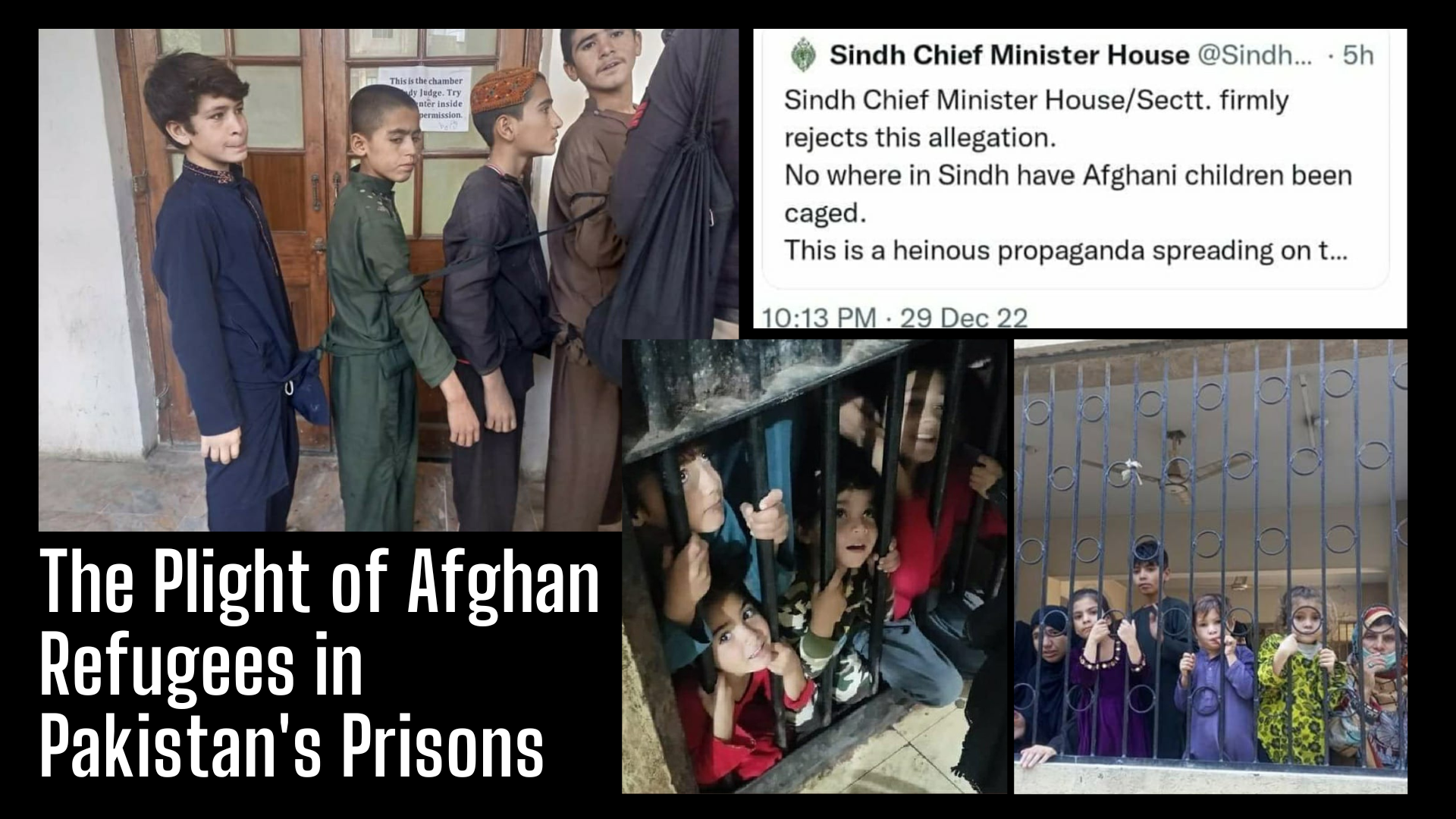The Taliban’s takeover of Kabul had a massive impact on the Afghan refugees in Pakistan but unfortunately went relatively unnoticed in the international media. An estimated two thousand Afghan refugees are imprisoned in the jails of Jamshoro and Karachi in the Sindh province of Pakistan alone and many of them are women and children. With the current situation in Afghanistan and the lack of treatment facilities there, these women and children have been forced to come to Pakistan. Among them, some women are sick and some women are expecting mothers. These medical facilities are inadequate. A few women have given birth to children in prison and cannot access medical care.
Despite donations received by Pakistan from international organizations working for the Afghan refugees, they have not trickled down to the real beneficiaries. Unfortunately, even women and human rights organizations have not reached out to these victims. The PTM has been helping these imprisoned Afghan refugees, with financial and legal support. There is only one female lawyer in Karachi, Advocate Manza Kakar fighting for the rights of Afghan women and children and raising funds for them. PTM’s leader Manzoor Pashteen wrote in a tweet that “Afghan girls are deprived of knowledge in Afghanistan and innocent Afghan girls are imprisoned in Pakistan”. In response to this tweet, a Sindh Government Minister questioned these claims.
Pashteen challenged the Sindh government to rectify its claims following which it deleted the tweet that claimed there were no Afghan refugees in Sindh’s jails. The PTM has raised its voices on various forums, including social media and the protest demonstrations in support of Afghan women, girls and children languishing in Pakistan’s jails. For unexplainable reasons, these refugees are kept in prison, their deportation is prolonged and their cases are stuck in the courts on various pretexts. We were anguished to know that one Additional Sessions Judge responsible for handling the refugees’ cases went to Canada for vacation without completing the legal process of deporting Afghan women and girls imprisoned in prisons.
Of late, the government has planned to accelerate legal action against Afghan refugees. One of the main reasons is that a few political parties in Sindh have been campaigning to expel Afghan refugees from Sindh for some time now. Under the pressure from these political parties, and to strengthen its vote bank, the Sindh government’s actions against the Afghans go against basic human rights and refugee laws.
Afghans face a dual challenge, both in Afghanistan and Pakistan. On the one hand, Afghans are being arrested and deported on the orders of the Sindh government. We believe that occupation of Afghanistan is illegal and the effects are visible in restrictions imposed on women and girls. The international community has not acted strongly enough to prevent the Taliban from going back on its commitments. The Afghan tricolour flag has been removed from the Afghan diplomatic mission in Pakistan and replaced by the Taliban’s flags. The Taliban, who have now occupied the Afghan embassy in Pakistan are not helping the Afghan prisoners either. It appears that as Pakistan’s allies, they are hesitant to raise this issue with the Pakistani authorities. Through this report, the PTM urges all the leading Human Rights organizations and the international community to raise their voices for women, girls and children imprisoned in Pakistan. The United Nations should defend the rights of Afghan women and children in the same way as it is vocal about other issues.

